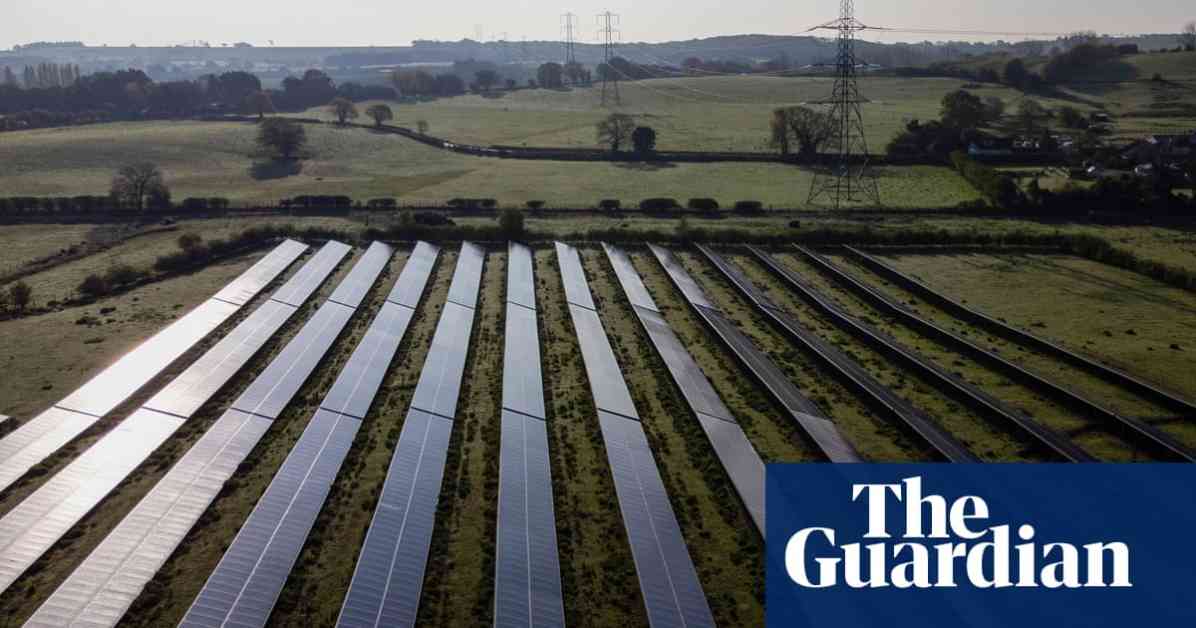Labour’s plan to create a clean electricity system in Britain by 2030 may be challenging, but it is still considered credible by the energy system operator. The National Energy System Operator (Neso) has advised that urgent action needs to be taken to address Britain’s slow planning system in order to achieve this goal. The operator believes that Britain could potentially become a net exporter of green electricity by the end of the decade without incurring additional costs to the energy system. In fact, bills may even decrease if the right policy changes are implemented.
Fintan Slye, the chief executive of Neso, emphasized the importance of bold and sustained actions to overcome the challenges in delivering clean power. He highlighted the need for significant growth in regional power networks and the high-voltage transmission network to meet the targets set for 2030. Additionally, there is a call for urgent action from industry, regulators, and government officials to streamline the planning process for major projects.
The two pathways identified by Neso to achieve the government’s clean energy goals involve a significant increase in renewable energy projects. This includes plans to expand offshore wind capacity and potentially rely more on nuclear power with carbon capture technology. Both scenarios require a substantial increase in onshore wind and solar power capacity, as well as a market for flexible power demand.
Ed Miliband, the energy secretary, expressed confidence in the government’s mission to transition to clean, homegrown power and reduce dependency on volatile fossil fuel markets. He emphasized the need for significant reforms in planning and grid infrastructure to support the transition to clean energy.
The system operator, now under public ownership, is working closely with GB Energy to facilitate the connection of new generation projects to the electricity grid. This collaboration is part of a broader effort to achieve the government’s clean energy objectives by 2030.
Overall, while the road to achieving a clean electricity system in Britain by 2030 may be challenging, the commitment to bold and sustained actions, along with necessary policy changes, can make this vision a reality. By addressing issues in the planning system and investing in renewable energy projects, Britain has the potential to become a leader in clean energy production and reduce its reliance on fossil fuels.












